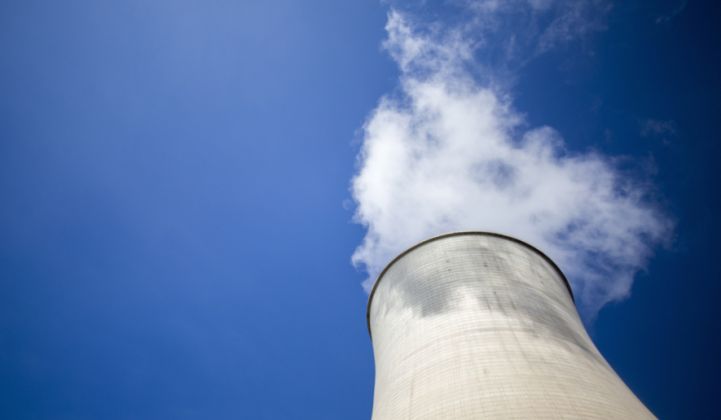The new chairman of the Federal Energy Regulatory Commission has asked Energy Secretary Rick Perry for 30 more days to consider a controversial DOE proposal to give coal and nuclear power plants cost recovery status.
The request from Kevin McIntyre, one of his first acts after being sworn in to replace interim chairman Neil Chatterjee on Thursday, could relieve some of the intense pressure on FERC as it seeks to meet a Dec. 11 deadline for making a decision on the DOE’s notice of proposed rulemaking (NOPR).
But it’s also likely to give opponents to the proposal, which range from clean energy and environmental groups to the oil and gas industries, more time to weigh in with data that undercut the central premise of Perry’s proposal -- that power plants with 90 days of fuel supplies on hand are critical grid reliability and resilience assets that must be protected from competition.
McIntyre’s letter to Perry noted that FERC has received over 1,500 submissions commenting and replying to comments on the NOPR. As we’ve covered, these comments range from support from utilities, communities and labor unions with significant links to the coal industry, to opposition from a broad swath of energy industry groups, independent analysts, and former FERC commissioners from both sides of the aisle.
“In addition, the Commission has sworn in two new members within the last two weeks,” McIntyre wrote. “The proposed extension is critical to afford adequate time for the new Commissioners to consider the voluminous record and engage fully in deliberations.”
The letter comes at a critical time for FERC’s review of the NOPR, issued by the DOE in late September, which cited vague and unsupported claims of a national grid reliability emergency to justify placing regulators on a very short deadline to consider and act.
Chatterjee, a former aide to Sen. Mitch McConnell (R-Ken.), had been the lone FERC chairman to express support for the idea of backing coal and nuclear power plants with some form of protection from their current economic challenges. In the past few weeks, he has talked about pushing through an interim rule to meet the Dec. 11 deadline, echoing a proposal put forward by coal-dependent utility FirstEnergy.
These comments have given rise to concerns from NOPR opponents that Chatterjee would seek to act before FERC saw its final two new commissioners join the agency. Trump appointees Kevin McIntyre, a Republican, and Richard Glick, a Democrat, were officially sworn in this week, joining Chatterjee and commissioners Rob Powelson and Cheryl LaFleur, who have both expressed concerns over the NOPR.
Powelson and LaFleur have been reported to be working on an alternative proposal that would give the grid operators that FERC regulates 90 days to review the rule and report back. Every grid operator in the country has come out strongly against the NOPR’s proposed changes.
Eight former FERC commissioners, both Republican and Democrat, have also condemned the NOPR as an unprecedented reversal of decades of precedent that could “blow up” the country’s energy markets. Several analyses have shown that implementing the NOPR could cost consumers billions of dollars in higher energy bills, while providing little or no benefit to increasing grid reliability and resilience in the face of extreme weather and other disruptions.




